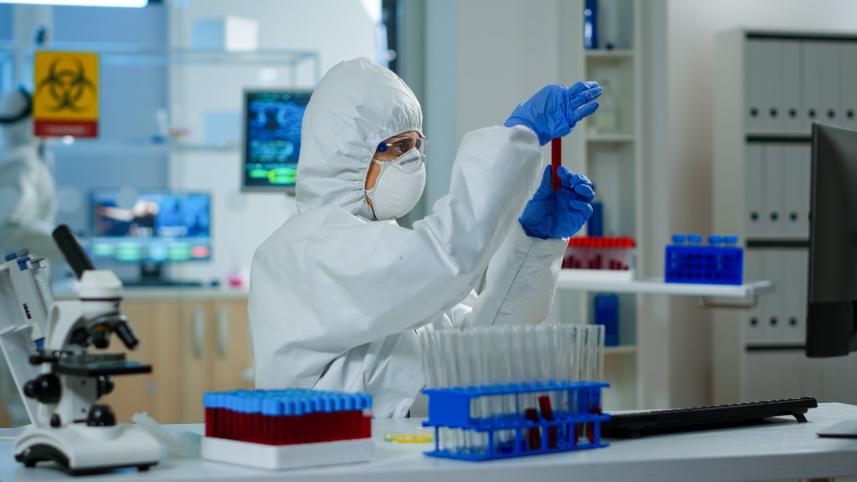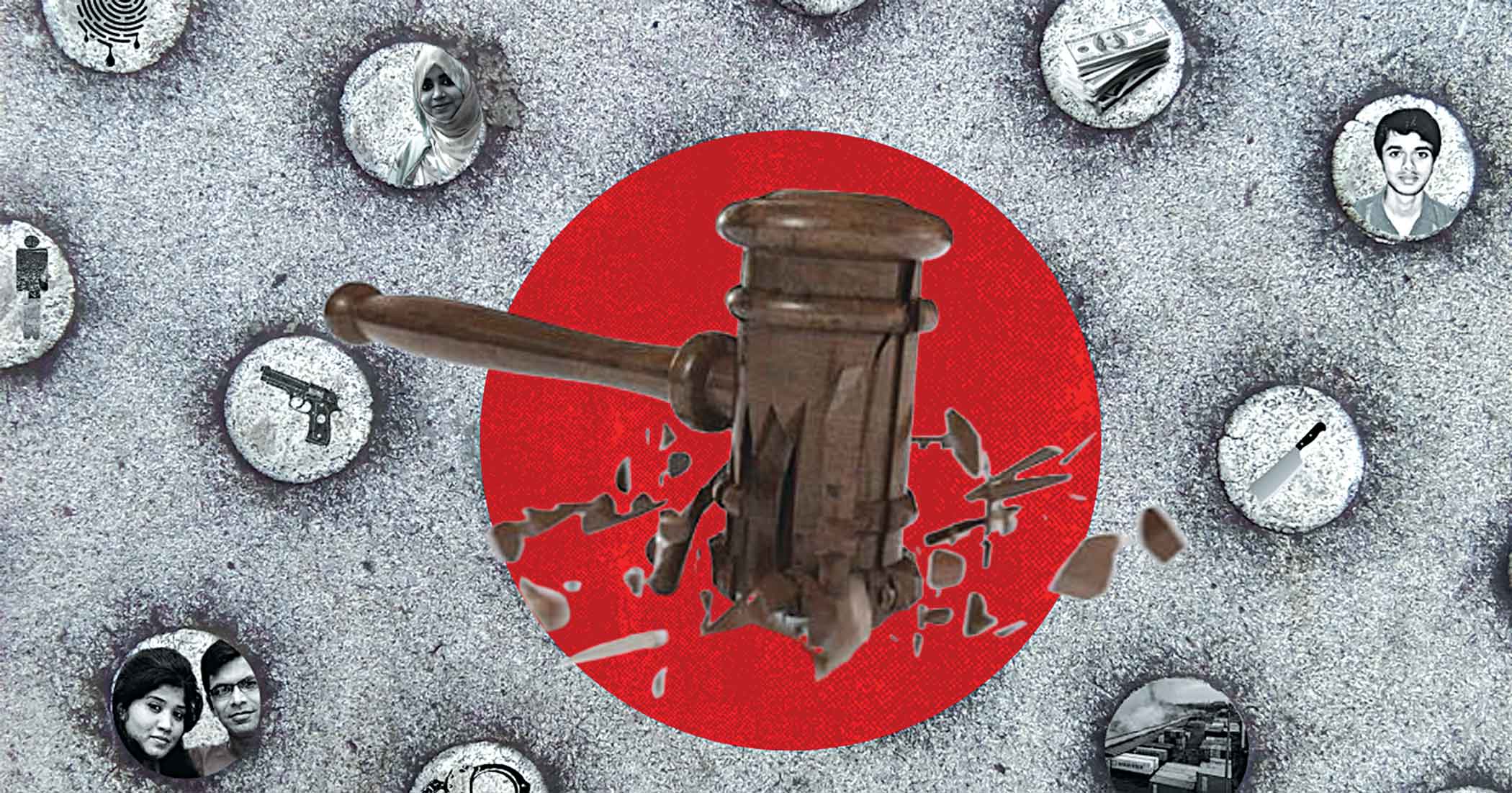The critical need for forensic infrastructure in Bangladesh

In the complex machinery of the criminal justice system, forensic laboratories are essential pillars, providing scientifically accurate evidence that can make or break a case. From DNA testing to narcotics analysis, these facilities have proven to be indispensable in identifying perpetrators, exonerating the innocent, and ensuring fair trials. Yet in Bangladesh, the potential of forensic science remains largely untapped due to a scarcity of infrastructure, old-fashioned technology, and systemic inefficiencies.
Currently, Bangladesh has a limited number of operational forensic laboratories capable of conducting DNA testing. The National Forensic DNA Profiling Laboratory (NFDPL), set up within the premises of Dhaka Medical College Hospital, serves as the central hub for forensic investigations nationwide. Other institutions, both government-run and private, have begun to expand their capabilities, but the scale remains inadequate for a country of over 17 crore people.
Despite its critical role, NFDPL is marred by challenges such as outdated equipment, a shortage of skilled personnel, and a growing backlog of cases. These constraints have led to significant delays in forensic reporting, which in turn hinders the timely dispensation of justice. According to official records, as of late 2024, investigations into 789 cases were stalled due to delays in obtaining DNA test results.
Courts in Bangladesh regularly require forensic analysis to expedite proceedings, particularly in cases of murder, rape, and drug trafficking. The Ministry of Home Affairs, in collaboration with the Directorate of Forensic Medicine, has established protocols prioritising urgent cases. The country's reliance on the single operational DNA lab under the CID, combined with the challenges faced by NFDPL, is a major reason for the systemic delays.
The legal framework for forensic evidence is well established. The Code of Criminal Procedure (CrPC), 1898, the Evidence Act, 1872, and the DNA Act, 2014 collectively provide for the collection, admissibility, and regulation of forensic evidence. Notably, Section 45 of the Evidence Act allows expert opinion, including on DNA evidence, to be presented in court. However, the lack of infrastructure has hindered the practical application of these provisions.
In the landmark case of Bangladesh Legal Aid and Services Trust (BLAST) & Ors. vs. Bangladesh, a division bench of the High Court Division of the Supreme Court issued 18 directives mandating that DNA samples in rape and sexual assault cases be collected within 48 hours of the incident. This decision came after a Garo woman's rape complaint was delayed due to jurisdictional complications, highlighting systemic failures.
In another notable case, Bangladesh Jatiyo Mahila Ainjibi Samity vs. Bangladesh, the High Court Division used a sibling's DNA during the trial of an attempted child trafficking case, reinforcing the use of forensic science in protecting children's rights. Additionally, the court ruled that DNA test reports are admissible only if the expert who prepared the report testifies in Court, ensuring the integrity of evidence and the rights of the accused.
However, there have been some persistent gaps. The Deoxyribonucleic Acid (DNA) Act, 2014 was a legislative milestone that established a legal basis for DNA profiling in criminal and civil cases. It includes provisions for a national DNA database and penalties for tampering with samples. However, critical flaws remain. The Act lacks explicit safeguards for informed consent, privacy protection, and independent oversight, raising concerns about misuse and wrongful convictions.
Section 12 of the Act permits DNA collection from suspects and victims but does not mandate judicial authorisation or define consent protocols. Besides, section 15 provides for a national DNA database but fails to set retention timelines for samples collected from acquitted individuals, diverging from international standards.
Countries like the UK, the US, and India have progressed in DNA legislation and application over the years. These developments reflect a shared judicial recognition of DNA's forensic value, even though disparities in legal infrastructure, enforcement capacity, and technological integration highlight the uneven global evolution of DNA profiling in criminal justice systems. However, the Deoxyribonucleic Acid (DNA) Act, 2014, lacks nuanced provisions, featuring the need for urgent reform to align with global best practices. Experts suggest the incorporation of informed consent mechanisms, strict data protection protocols, and independent regulatory bodies to ensure ethical handling of DNA evidence.
Importantly, calls for reform and expansion have been raised from various stakeholders and social worker groups. To address this issue, in March 2025, the interim government of Bangladesh approved amendments to the Women and Children Repression Prevention Act, 2000, promising to establish specialised Tribunals and additional DNA labs. These reforms are expected to accelerate case resolution and improve access to justice for vulnerable populations in the country.
However, experts argue that piecemeal efforts are insufficient. To meet international benchmarks, Bangladesh should aim to set up at least 8-10 fully equipped forensic labs across key regions, each supported by trained forensic scientists and legal experts. According to international standards, high-density countries should maintain at least one forensic lab for every 10–20 million people, a target that Bangladesh currently falls far short of.
The persistent delay in the establishment of sufficient forensic infrastructure in Bangladesh stems from a combination of bureaucratic inertia, budgetary constraints, and institutional inefficiencies. Despite repeated pledges from successive governments, the development of DNA testing capabilities has lagged, leaving law enforcement agencies and the judiciary to rely on less reliable forms of evidence.
A strategic, data-driven approach to expanding forensic infrastructure, coupled with legal reforms and capacity building, can transform the landscape of criminal justice in Bangladesh. By investing in modern forensic laboratories or DNA labs, training forensic and legal professionals, and revising outmoded laws, we can expedite the resolution of criminal cases, ensure justice for victims, and restore public confidence in our judicial system.
Md. Anwar Hossen is an advocate at the Supreme Court of Bangladesh. He can be reached at anwar.lawvalley@gmail.com.
Views expressed in this article are the author's own.
Follow The Daily Star Opinion on Facebook for the latest opinions, commentaries and analyses by experts and professionals. To contribute your article or letter to The Daily Star Opinion, see our guidelines for submission.



 For all latest news, follow The Daily Star's Google News channel.
For all latest news, follow The Daily Star's Google News channel. 

Comments